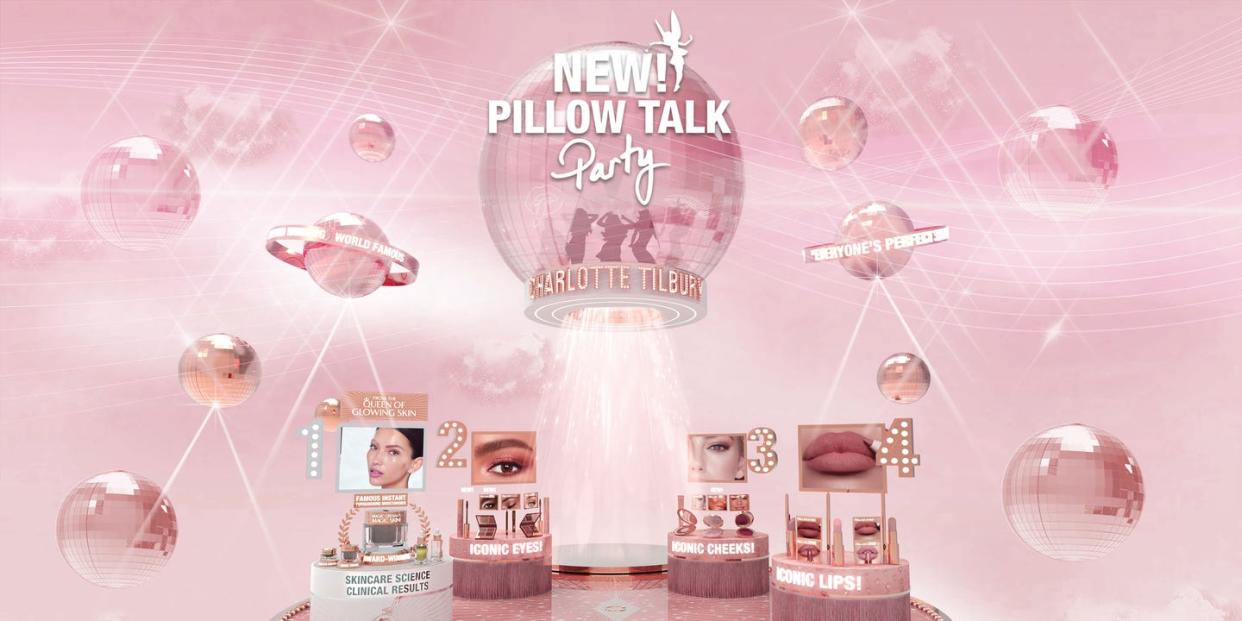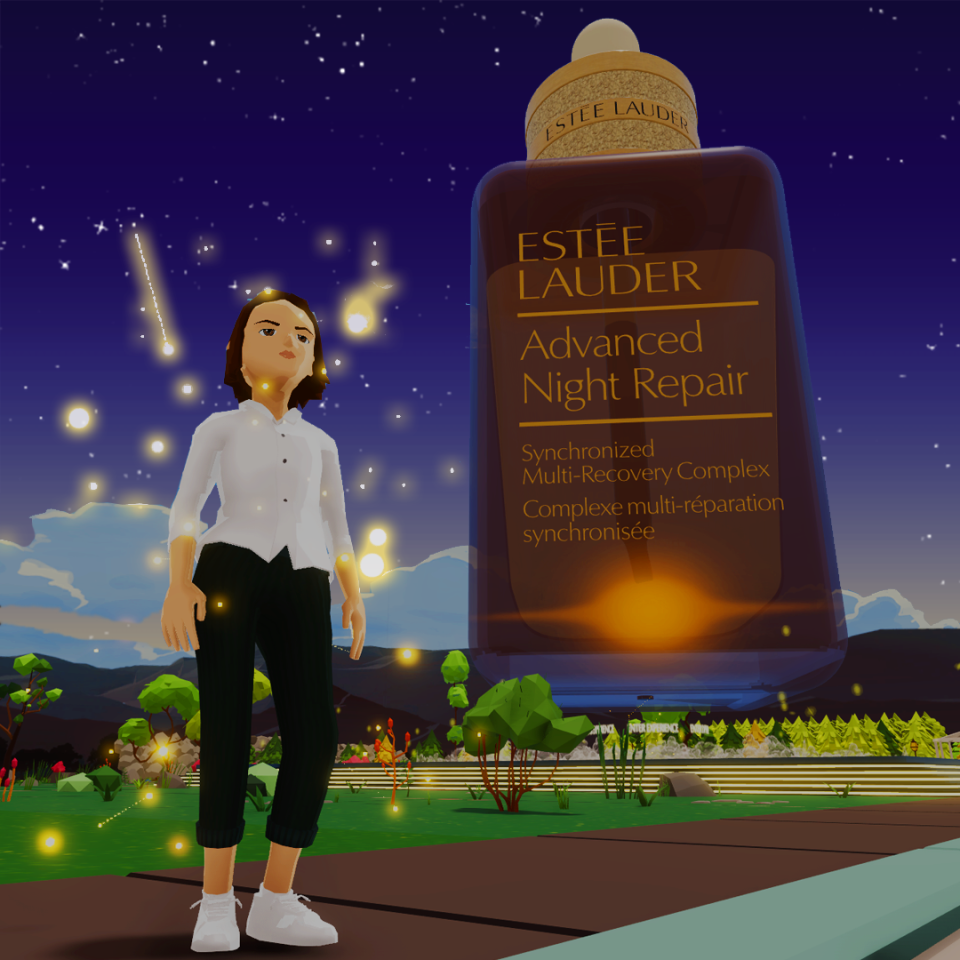How beauty is entering the metaverse, from NFTs to virtual cosmetics

It seems somewhat crazy that an industry like beauty – rooted in sensory experiences where personal touch and physical treatments are king – is being transformed and re-invented for a virtual world where you can’t feel, smell or literally touch what’s in front of you. But it’s happening and brands are quickly having to adapt and learn how to establish themselves in the digital realm.
Charlotte Tilbury, Lottie London, YSL, Estee Lauder, Gucci and NARS are already fully immersed and in February this year L’Oréal reportedly filed 17 trademark applications relating to the metaverse linked to NFTs (more on those later), virtual perfume, cosmetics and styling for avatars. Rhianna has also just applied for a Fenty trademark for her Savage X Fenty and Fenty Beauty brands. Recognised for their inclusive shade ranges, they’re laying down the gauntlet for other inclusive brands to join them in the virtual world. Because what it seems to lack in touch it makes up for in creativity and freedom of expression.
“The metaverse is essentially limitless in terms of how one can express themselves through things like their avatars and it’s this that will unlock more surreal beauty looks, new areas of inclusivity and abstract self-expression,” says Jon Roman, SVP, global consumer marketing and online at Estee Lauder. Put simply, it’s a place where you can be anything you want to be and look however you want to look, without any restraints or restrictions you might encounter in real life.
Alex Box, make-up artist and identity designer, is in agreement and has embraced the virtual possibilities. “Beauty has been built on commodification; now it’s about more immersive experiences and education - adding to the touch element rather than replacing it. As the technology and insights evolve, so will the sophistication of the experience.”
It’s already appealing to the digitally savvy demographic, especially female gamers which account for a bigger audience than you might think. In fact, a report by We Are Social found that 80 per cent of female internet users aged 16-44 play video games while another survey from the Global World Index discovered that last year, 53 per cent of beauty fans played or downloaded a free-to-play game. It’s no wonder Charlotte Tilbury took a calculated decision to sponsor the Girl Gamer Festival. In April the brand launched its first virtual store – Pillow Talk Party Virtual Beauty Wonderland where guests are greeted by a 3D volumetric avatar of Charlotte immediately etching brand awareness into gamers’ memories. Although to enter Charlotte’s world you don’t need to log in to a specific metaverse - you can access her magic portal via your web browser or mobile. Simply scan a QR code and she will magically appear in front of you, alongside 3D products that float and spin, doors that open up to masterclasses with the global pro artists and the opportunity for you to ‘shop with friends’.
Entering the virtual space via Drest, the digital fashion app, Gucci Beauty was the first brand to launch the app’s beauty mode allowing users to experiment with 29 of its virtual beauty products. Soon after NARS and Drest unveiled a nine-day beauty campaign where looks could be customised on avatar models using 30 of their products. Consumers could then save the looks and products on personalised mood boards.
When it comes to specific ‘metaverses’, there’s more than one digital playground to choose from, although for beauty, it’s Decantraland that seems to be the favoured space with its real focus on freedom and expression. It’s also where consumers can access NFTs (non-fungible tokens) and collect wearable POAPs (proof of attendance protocol). Originally used for the artworld, NFTs are digital collectables that can be traced back to a blockchain (a system of recording information that can’t be changed or hacked). Working a bit like an original piece of artwork, they last forever and can’t be replicated while POAPs are similar to a ticket, programme or t-shirt that verifies you were present at an event.
“We dipped our toe into this digital space last year when we launched our first ever NFTs with Ciate London and the response was overwhelming, selling out within 24 hours,” explains Nora Zukauskaite, global marketing director at Lottie London. Hosting an event in the Vegas City District of Decantraland with LA’s celebrity nail artist, Chaun Legend, it seemed the perfect place to preview Ciate’s new collection and announce they would be re-entering the nail category for the first time in six years.
“In real life we would be super limited to one location, time zone and be stagnant in our placement but we could showcase our brand and products in a new way and to a large audience,” continues Nora. “It’s unlocked a huge amount of potential and we’re just about to host the first ever Decantraland prom party. It’s in an exclusive venue where we’ll also have 1000 unique POAPs with Lottie London bestseller glowing make-up enhancements, a prom crown and corsage.”
Estee Lauder also entered Decantraland recently and was the exclusive beauty brand to partner with Metaverse Fashion Week in March. Inviting users to step inside the iconic Advanced Night Repair ‘little brown bottle’ in doing so, they unlocked an exclusive POAP and one NFT wearable that gave their avatars a glowing radiant aura that lasts as long as the user wishes. A cult product for die-hard beauty fans, the metaverse meant they could tap into a new audience not already familiar with Estee Lauder. “It’s not specific to age; it’s about attracting and engaging with new communities of consumers who are already immersed in the metaverse and interested in connecting with beauty and fashion brands virtually,” explains Roman.

While currently the main metaverse demographic does sit with Gen Z and millennials, anyone with internet access can get involved and WGSN has predicted that by 2024 there will be a new beauty persona for brands to target – the Beautyversals. An audience that puts digital products on a par with their physical counterparts, they will also prefer to interact with virtual ambassadors than IRL experts.
Dermalogica is already testing the waters in-house and rather than focusing on brand-to-consumer activity they have created the first in-house digital ambassador – Natalia – who trains therapists on new treatments, products and protocols. Opening up a whole new dimension, her avatar can show skin ageing that one would never be able to experience in real time.
Emma Chiu, global director at Wunderman Thompson Intelligence believes that this blurring of the two worlds will become the new reality. “Digital touchpoints are by no means a replacement for in-person activities but the metaverse is offering another experience that is more sophisticated than what we have been experiencing. There are times when it makes sense to dip into the metaverse and times to turn to real-world activities. Reality as we know it will change and while it may be an adjustment for older generations, for those born now, the metaverse is their future.”
Giving brands an opportunity to add a layer of ‘deep service’ to their offerings and consumers a new way to experiment, enjoy and play with beauty products, expect more brands to start opening their doors to virtual stores and enticing you with NFTs from here on in.
You Might Also Like


